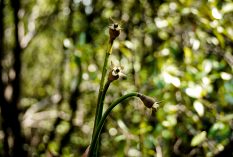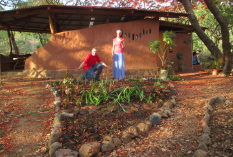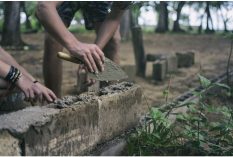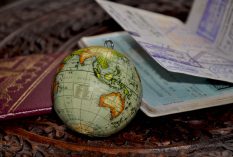The planet we call home is changing. The evidence is all around us. Temperature rises, freak weather patterns, the lack of distinct seasons. All of these things point to changes on a planetary scale.
The impact of these changes is huge. They are forcing us to re-evaluate how, and where, we live. Many people are fleeing from their homes in places like Bangladesh, where river flooding has gone from being a valuable part of their way of life, to a serious danger. The animal kingdom though, struggles to adapt much more than we do.
Some people argue that these changes are occurring as part of a natural cycle. Others say that all of the problems are man-made. Whatever the truth, it’s an issue that evokes a lot of emotion in people who care.
Passionate about climate issues? Us too. At Global Nomadic, some of our most popular internships involve conservation and ecological work. These placements give great opportunities to make a real difference in reducing our impact on the natural world. But maybe you’re planning a different kind of trip?
Perhaps you want to explore the tropical islands of South East Asia. Beaches, palm trees, exotic food, possibly even some cute monkeys? On the other hand, maybe you want to see all the great cities of Europe. Traverse mountains and lakes, try the wine, pasta, strudel, take in magnificent paintings and old buildings? Don’t want to be left out? The good news is, you can still make a difference by reducing your personal impact on the environment. No matter what kind of travel you’re planning, there are several ways you can be climate clever.
Throughout the world, highly trained teams of people tackle specialised jobs. From fire and rescue crews, to conservationists. Each team has its own special equipment and tactics to complete their task. If you want to travel the world like a climate clever specialist, you’ll need the same.
Equipment
One of the first things we often think about when planning a trip, is what to take with us. The more places you visit and the more seasons you experience, the more your equipment gets refined. In the meantime though, start in the best possible way.
Clothing
What to wear? There are infinite answers to this question. Well… definitely not sandals and socks, m’kay?!
As a minimum, you should consider buying clothing made from bamboo. Typically combined with organic cotton, bamboo clothing offers outstanding everyday comfort, alongside superb climate credentials. Bamboo is one of the world’s most sustainable resources. It’s high yield, uses little energy or water to grow and is a low maintenance crop.
If you don’t want an entire wardrobe from bamboo (or you want amazing socks), consider merino wool. Also sustainable, it brings more benefits for travel. The merino sheep that have developed this wool live in the mountains of New Zealand where it’s 35° in the summer and -20° in the winter. Therefore, their coats have to be able to keep them both cool in the summer and warm in the winter. For you, this means you can purchase garments that you can wear all year round in a variety of conditions. They’re also anti-bacterial and wick sweat away to keep you looking cool, even when you’re boiling!
Power
Another important requirement for the modern traveller is remaining connected to the rest of the world whilst travelling. These days, this typically involves a smartphone at the very least. It gives you the ability to share your journey, makes meeting other travellers easier and of course, allows you to plan and learn about your destination.
However, we know that electricity is not only limited the more off the beaten path you go, but it’s also costly to the environment to produce. Fortunately though, there are two easy answers here. The first is solar power. It’s now possible to charge your smartphone entirely with the power of the sun. This means zero environmental impact and you get to be free from the need for power sockets.
There’s more to life than just your phone though. You’ll want to take a camera and perhaps some other gadgets to keep you looking your best. The good news is you can now charge camera batteries directly from a solar charger. For everything else, you can also carry AA or AAA batteries and charge them from the sun as well.
Water
The reality though is that the most important thing to your trip is water. As the number one human need, without it, everything else is pointless. It’s also an area where you can make one of the biggest reductions to your environmental impact.
On a typical travel day, it’s easy to go through several bottles of water. Each time you do, you’re creating more plastic waste for the planet to deal with. Most countries exacerbate the problem by not having effective recycling programs in place.
The solution? Carry your own water container with you and refill as you go. This will save dramatically on waste, but it requires another piece of gear to be super effective in many places – purification equipment.
Given tap water is unsafe to drink almost everywhere across Asia, South/Central America and Africa, water purifiers should be essential for the majority of travellers. They can save the environment, save you money and keep you healthy. A real no-brainer.
Tactics
So now you have the gear, you’re already well on your way to massively reducing the impact of your travels. But there are more things you can do to maximise your results.
You already know that flying is one of the biggest culprits of emissions and yet it is perhaps the most key ingredient in opening up our world to travel. However, planes use the most fuel whilst taking off and landing, so if you can, avoid multi-stop flights and fly direct. That way, you can still travel far for cheap, whilst limiting the damage you’re doing.
Once in the region you’re travelling through, go one better and travel overland. For example, an overnight train ride from Kuala Lumpur through Malaysia and across the Thai border can cost as little as £10. It’s much more climate friendly and it gives you a real sense of adventure. There are trains all over the planet and even in Western Europe, Switzerland, Italy, Spain and beyond are all easily accessible from London and therefore the rest of the UK.
Another tactic that’s essential is to travel light. No matter what form of transport you’re using, more weight means more emissions. So carry less. The planet, and your back, will thank you.
Now, pack your gear, plan your trip and head out into the world knowing that you’re helping to preserve the amazing places you’re going to see.
Global Nomadic offers Professional Internships, Volunteer Projects and TEFL Programmes in 29 countries worldwide. Start travelling your career today!











